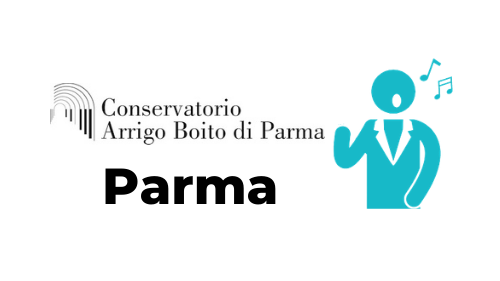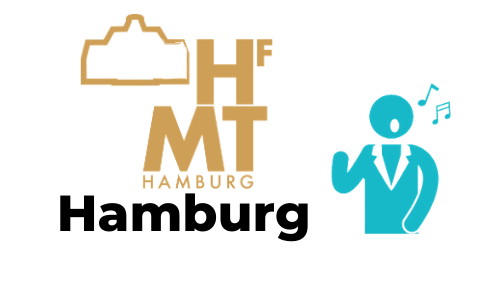
Period of the EOA module in 2024-2025:
ERASMUS students (SMS and STT) may choose a mobility within one semester (or both)
- Winter Semester: 1 October 2024 – 2nd week of February 2025
- Spring Semester: 3rd week of February 2025- 30 of June 2025
Description of the EOA Module
This module guides the student through a path of vocal and scenic interpretation of one or more scenes from eighteenth-century Opera Buffa’s repertoire: Pergolesi, Cimarosa, Paisiello or Rossini (preferably his “Farces in one act”)
- Analysis, study and full understanding of the libretto(s) and character(s) chosen.
- Vocal technique and style coaching in Opera Buffa repertoire.
- Advanced Italian pronunciation and diction classes.
- Specific lessons on Recitativo.
- Individual coaching and group work: vocal and score lessons and group work on Scenic Art (Training of the actor’s body, physical and gestural laboratory).
- Preparation for final exam and concert(s).
Classes will be held in Italian and English.
ERASMUS students have to choose other courses (e.g. Opera History, Poetic and Dramatic Literature, etc.) among those annually proposed by the Conservatory, to reach the total number of required credits.
Special attention will be given to the study of proper Italian diction and pronunciation with native Italian teachers, in building the chosen Opera Buffa character (both scenic and vocal) with full linguistic and stylistic background. Special focus on Recitativo.
Kind of voice and role
All kind of voices suited for Opera Buffa repertoire.
Specialty of this module in comparison with other courses in Europe
A full immersion into Italian opera together with the opportunity to develop the best practice in Italian language applied to opera. Choice of repertoire (title and characters) according to student’s needs. Exchange and collaboration with other students of the Conservatory (from all over the world) working on the same repertoire.
A unique opportunity to fully immerse themselves in the rich operatic music culture of the territory, attending places of unique musical interest, within the Conservatory (Musical Section of Libreria Palatina, Boito’s Studio and Toscanini’s Studio) or in the immediate nearby of it (the Library of the Istituto Nazionale di Studi Verdiani, the Museo dell’Opera, the Casa della Musica etc).
Possible extras in addition to this module:
Upon request a little tour of the main “music treasures” of Verdi’s land: the birthplace of Verdi and Villa Sant’Agata, the Toscanini Museum, the worldrenowned Teatro Regio, the beautiful Teatro Farnese (17th century), the Casa del Suono, etc. Opportunity to join English Course level B1 or B2 in second semester.
Open for:
Max 5
Name(s) of the professor(s) of this module:
- Romano Franceschetto, Lucetta Bizzi and Teaching staff (Vocal coach) from the Singing and Music Theatre Department of the Conservatory
- Roberta Faroldi (diction and actor’s work)
- Riccardo Mascia (Recitativo coach, Score and Repertoire)
- Claudia Rondelli, Roberta Ropa, Laura Soracco, Luca Sabatino (Score and Repertoire)
Description of final examination:
Performance of an operatic full Opera Buffa scene in front of a jury. The examination may coincide with a public concert.
Number of teaching / teaching hours
60h of teaching (individual lessons + group lessons) per semester
Number of ECTS within master accreditation
Min 24 ECTS/semester (but possibly increasing according to the Learning Agreement).
Entrance examination
Online examination through the Application, that needs to include:
- CV
- Repertoire
- Videos
- Motivational letter (optional)
Teaching language/Required level of language
Italian (min A2 to be improved) and English (B2).
Total expenses of the EOA module per student and what is included/excluded in this price
Erasmus students (SMS) only. No extra fees.
Deadline for applications
- 1st deadline: 30 April 2024
- 2nd deadline: 15 October 2024
Date for expected answers
- 1st deadline: 30 June 2024
- 2nd deadline: 15 December 2024
